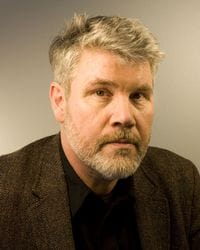
Terje Emberland who holds a doctorate in history of religion, and has written extensively on the ideology of the extreme right, is a researcher at The Centre for Studies of the Holocaust and Religious Minorities. He is concerned with how the political debate climate in Norway on issues like immigration and Islam has gradually changed into an atmosphere of conspiracy theories and a general lack, even, of political decency to such an extent that even MPs have started to describe the Norway’s progressive government in terms that belong to the rhetoric of war.
Where did the massacre spring from politically?
Terje Emberland (TE): “It is important to understand that Anders Behring Breivik was definitely not a nazi but the product of a political climate that has been plaguing the political debate in Norway for the last twenty-five years. Parts of the Norwegian ultra-conservative right have developed a worldview in which a sinister “politically correct elite” has established domination of all intellectual life and the major media and handed Norway over to Muslims who are simultaneously conquering the country through their high birth rate. According to these beliefs, Norway is under “alien occupation” and the government are “traitors who never asked the people their opinion on such paramount questions”.
How broadly are such views held?
TE: This way of thinking is widespread and reaches far into the right-wing populist Progress Party (FrP). FrP MP Christian Tybring Gjedde posed the government in a newspaper article: “What is wrong with Norwegian cultur, because you are determinate to replace it with something you call ‘multiculture’? What is the purpose of stabbing own culture in the back?”.
After putting these rhetorical questions, Gjedde ended by demanding to know: “Will we contribute to the cultural treason? Not if someone put up posters that say ‘Shot will he who…’ Will we ever feel multicultural? Never in the world!”
The posters Gjedde was referring to are the ones put up by the German occupiers during WWII, threatening those who resisted the Nazis and their collaborators with the death penalty. This has a heavy symbolic impact in Norway.
Does that symbolism really have an effect?
TE: As we know from countless examples in history, words and rhetoric are not without power, and when conspiracy thinking and hatred become a part of the political mainstream and enter its lifeblood, it can be expected that someone, sooner or later, will internalise the message and act on it, even though none of the propagandists have themselves have promoted violence. However, the need to use violence resides implicitly in the belief that we are under occupation and that the government are traitors and that we are facing a civil war in Europe.”
Do those who want to translate words into deeds draw on any sources historically?
TE: One of the idols of the terrorist Anders Behring Breivik was the WWII resistance hero Max Manus, one of the most active saboteurs in Norway during the war. Manus acted on the fact that Norway was under occupation, and blew things up to liberate his country. He became a national hero. Breivik distorted and deligitimised Manus’ contribution to turn him into a role model and, as he believed that the “cultural Marxists” of the government have given Norway over to alien forces, the logical choice was to take up arms and attack what he saw as the enemy. When you dehumanise your opponents, in the long run, they do not appear human any more and the road to to violence is short.
So what are the political implications?
TE: Well, those in politics and the media who have contributed to this poisonous political climate bear a heavy moral responsibility for what happened in Oslo and Utøya and it is pitiful to see them trying to denounce Breivik as a madman that just came from nowhere. The whole of society has to grasp that and the destructive role of these people. It is they who created the atmosphere the monster breathed!
Internet and media chatter suggest that Breivik’s mass murder was inevitable because a lid has been put on debate on immigration. Elisabeth Eide (EE), a Professor of Journalism in Oslo, considers this totally wrong.
Has public debate on immigration and multiculturalism been suppressed?
EE: Quite on the contrary, I would say. We have had a much sharpened debate, both in the national media as well as on the internet. The threshold for posting anonymously to newspaper websites has been very low. I have compared the comments posted on a newspaper like the Guardian in the UK with those posted to mainstream Norwegian newspapers, and it is my impression, though I cannot prove it scientifically, that Norwegian media is less strict. Some sections of society have realised that there is a kind of power in appearing as victims, and they have been trying to impose this on the general public.This power of the victim-rhetoric is poisonous and I feel there is a festering tumour here that we need to cut open to clean up the political debate.
This has not happened because argument and discussion have been suppressed. The opposite is the case. And that is why Breivik seems have felt that he had a lot of people behind him. The climate of the so-called public debate has served to devalue ethnic minorities.
This interview was made for Searchlight by Tor Bach in Oslo
